A familiar-looking yet novel brewing device, the Australian-born Delter Coffee Press, or DCP, made its public debut earlier this month at the 2019 Melbourne International Coffee Expo (MICE). Taking a physical form that can’t help but draw comparisons to the Aeropress, the DCP functionality is substantially different, yielding a cup more closely akin to a pourover, but with water delivery and agitation more deliberately controlled.
The device is a new design by Trinity One inventor Mark Folker, who has established a separate brand and company, Delter Coffee Tools, to develop the DCP and other devices and accessories going forward.
“I set it up to target more mainstream products that are simple and affordable,” Folker told DCN. “We have fresh opportunities to target retail and wholesale here in Australia, and hope to look for reseller partnerships overseas moving further into this year. Trinity remains as a more specialist equipment brand that is separate and will continue to target more innovative products with high focus on design and quality.”
The principle breakthrough of the Delter Coffee Press is what the Brisbane-based DCT company calls the Jet-Seal, which is a barrier that keeps the water in the brewer separate from the grounds until the user presses down on the piston. This differs from the AeroPress, in which the hot water and grounds combine from the get-go for more of a “full immersion” type of brew.
Also different from the AeroPress is how the plunger of the Delter starts off fully inserted, and the water passes through it. In an AeroPress, water is added first, followed by the plunger which isn’t pushed until the end.
Brewing with the Delter is apparently just as straightforward as the AeroPress, or the Trinity for that matter. With the FDA-approved, BPA-free clear Tritan copolyester plunger already inserted within the brewer of the same material, the user first inverts the device to dose grounds into the bottom brew chamber, then screws on the black polypropylene cap with a rinsed paper filter in place, and places the device right-side-up (brew chamber down) onto a cup or mug.
The user then adds 200 milliliters of hot water straight down in through the center of the plunger, aided by a fill line visible on the brewer. The user draws the plunger up, allowing water to pass through slots in its walls, pausing the plunger at a mark on the brewer indicating the point at which 50 milliliters will have been allowed to pass. This water rests on the Jet-Seal until the user presses the plunger down again to pre-infuse the grounds with that precise amount.
With the appropriate grind setting, the bloom might drip through a bit, like a pourover. After 30 seconds, the user raises the plunger to allow the rest of the water to pass, and presses it down through the seal, into the coffee. The company told DCN that the Jet-Seal is aptly named because rather than trickle passively, the water through the seal becomes a “jet” or shower through the seal’s 21 tiny holes.
“This speeds up extraction, as the water is passing through coffee with velocity and pressure, rather than a traditional immersion brewer that simply ‘waits’ under atmospheric pressure,” a company representative said. “We’ve timed brews with Delter and thanks to the Jet-Seal we can hit optimum extraction for a 400-ml serve in around 2:30, which is faster than a typical immersion or pourover brewer.”
The company also cited the Jet-Seal’s “reverse pressure release function” that allows the user to raise the plunger easily without forming a vacuum, despite the silicon gaskets snug fit against the inner wall of the device.
“The coffee bed is not disturbed when plunger is raised,” said the rep. “This also allows you to dose water accurately for infusion, and allows you to refill the brew chamber for double batch serves. This means that it’s possible to brew with 24 grams of coffee and 400 ml of water in a single extraction, which is great for people who want to make large servings or share a brew with two people.”
As the DCP is not exactly the same diameter as an AeroPress, the existing world of aftermarket Aeropress filters and accessories are not necessarily compatible with the DCP, though some may work coincidentally.
After a successful Kickstarter campaign late last year boosted the product through its final hurdles, the first production run of Delter Coffee Presses is now complete, including with the option to purchase a stainless steel reusable filter developed as a stretch goal towards the end of the campaign. Folker said they expect product to ship next week from their Brisbane warehouse. After that, the DCP will launch for retail sales in Australia at a price of AUD $49.95 ($35 USD, as of this writing).
The company is hopeful that overseas distribution partnerships come soon. Beyond that, Delter will continue to focus on developing coffee brewers, tools and accessories that excel in efficiency and convenience. These could possibly include some cold-brew-related products, as well as tools aimed at reducing waste or improving consistency. Folker said the second product by Delter Coffee Tools is slated for release by the end of 2019.
“The response [to the Delter Coffee Press’] at MICE was excellent,” said Folker. “I believe there are very exciting prospects for the product.”
Howard Bryman
Howard Bryman is the associate editor of Daily Coffee News by Roast Magazine. He is based in Portland, Oregon.



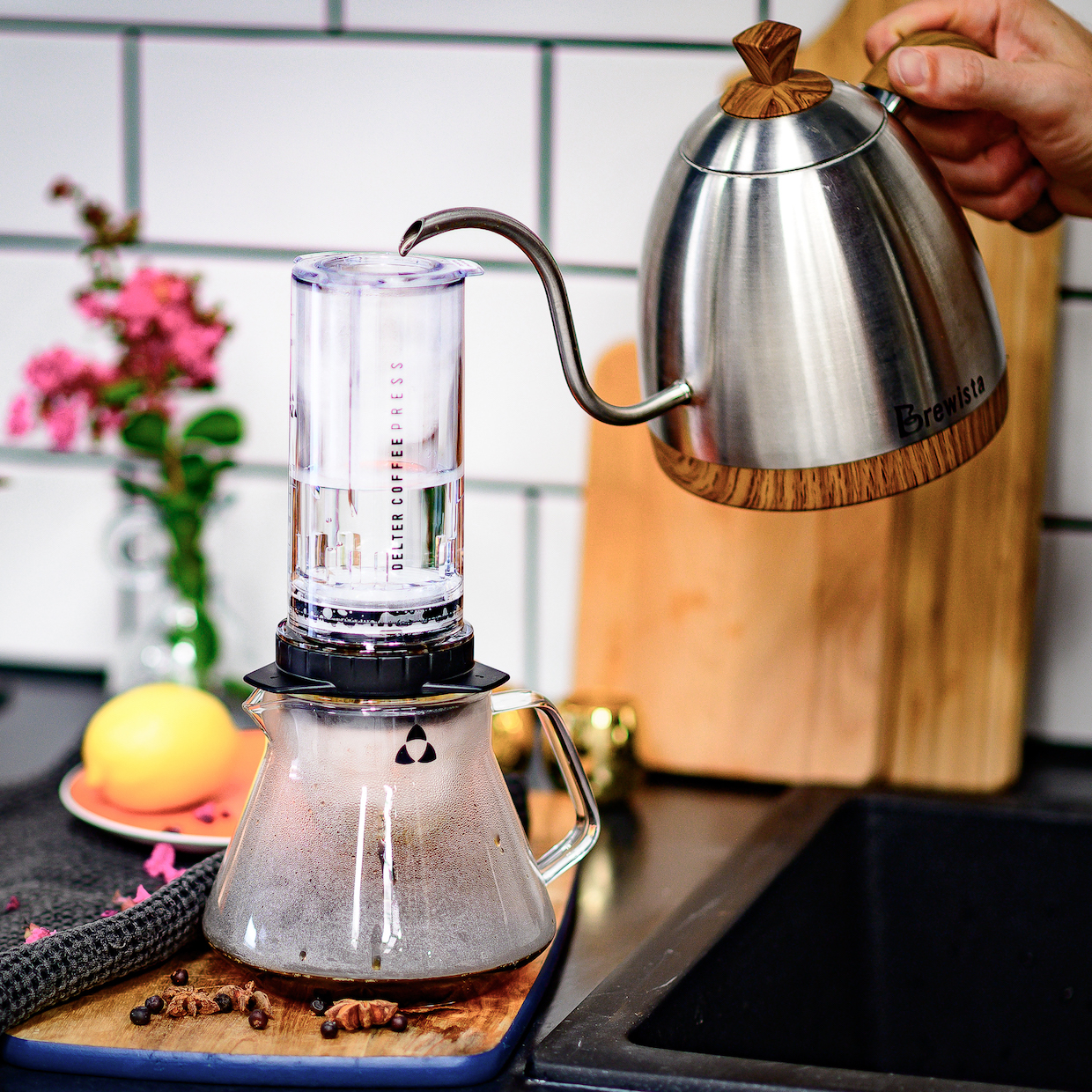
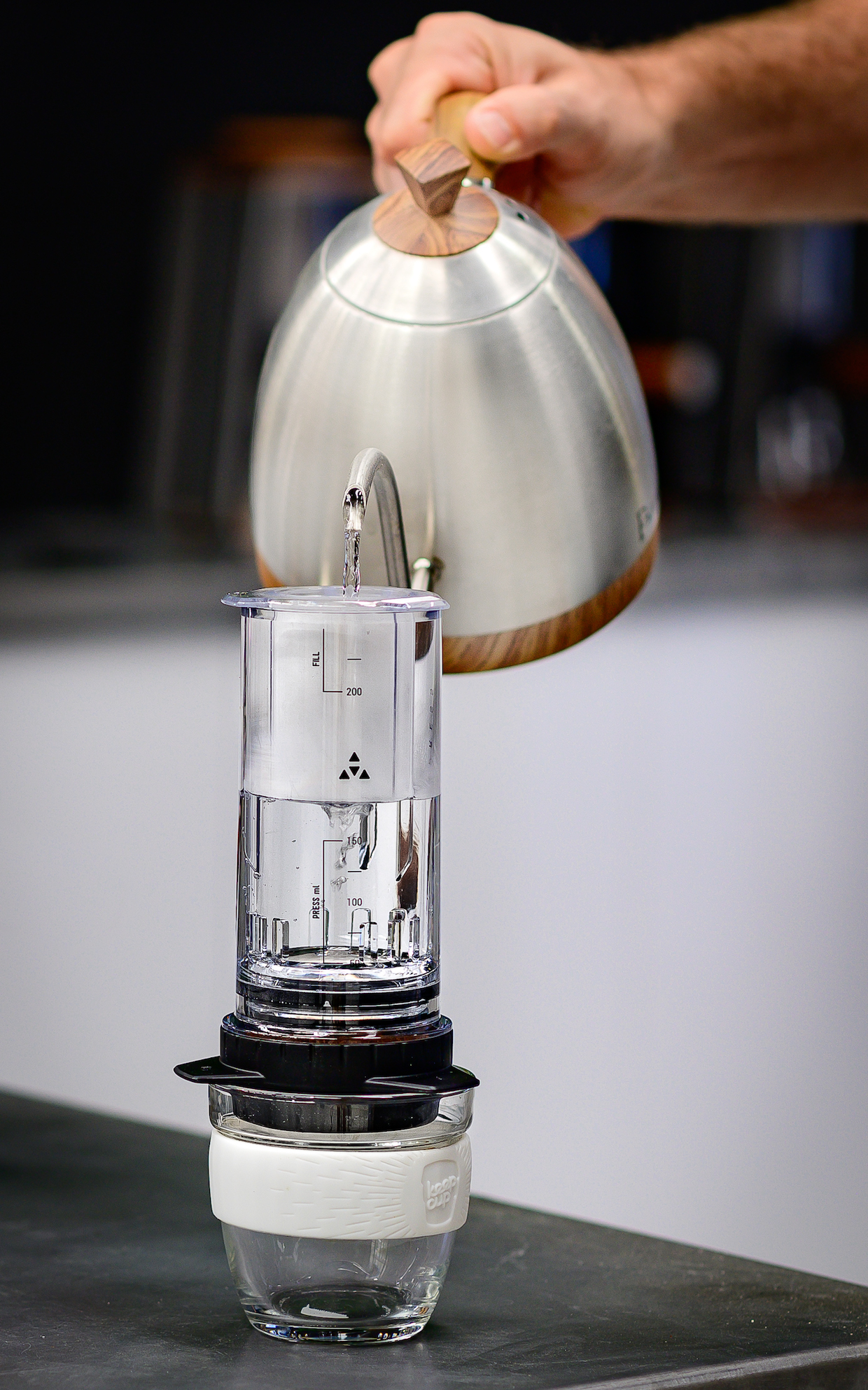
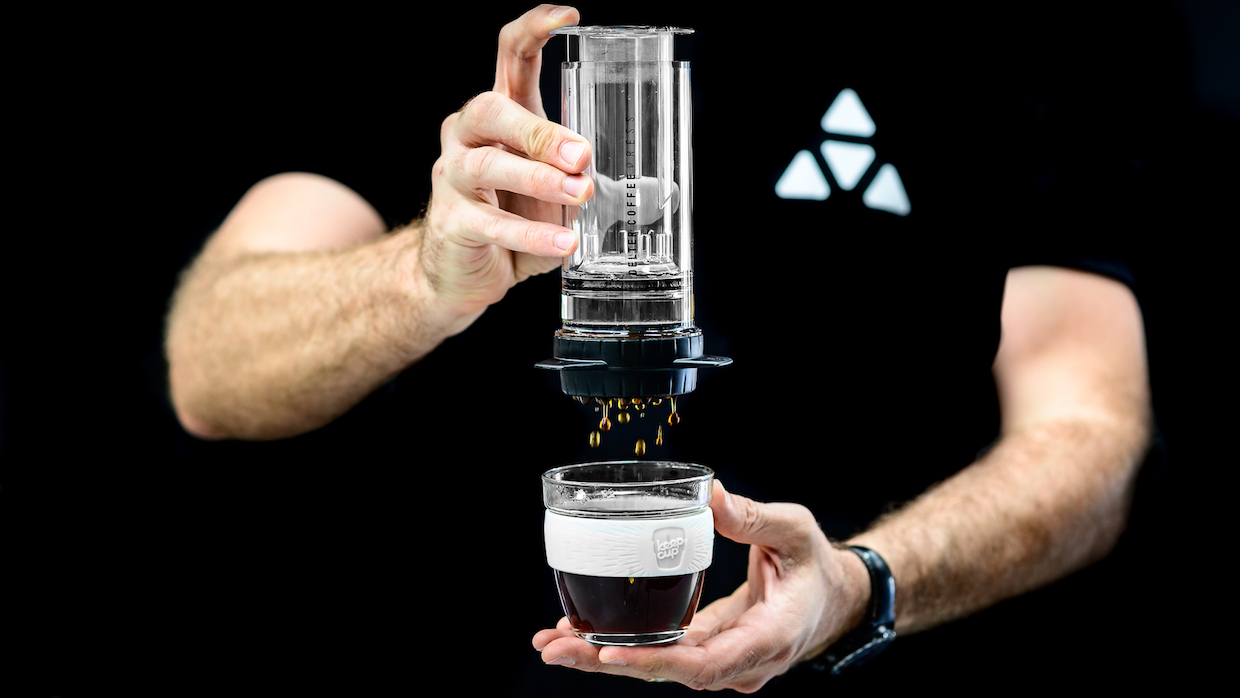
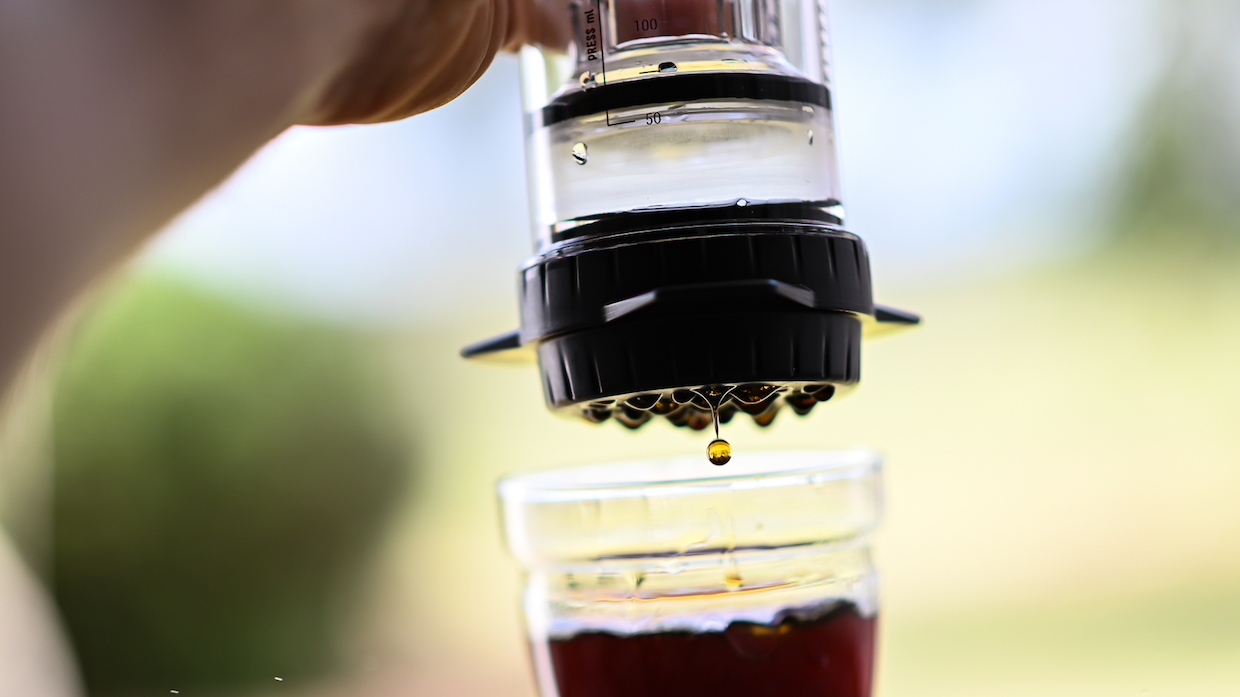
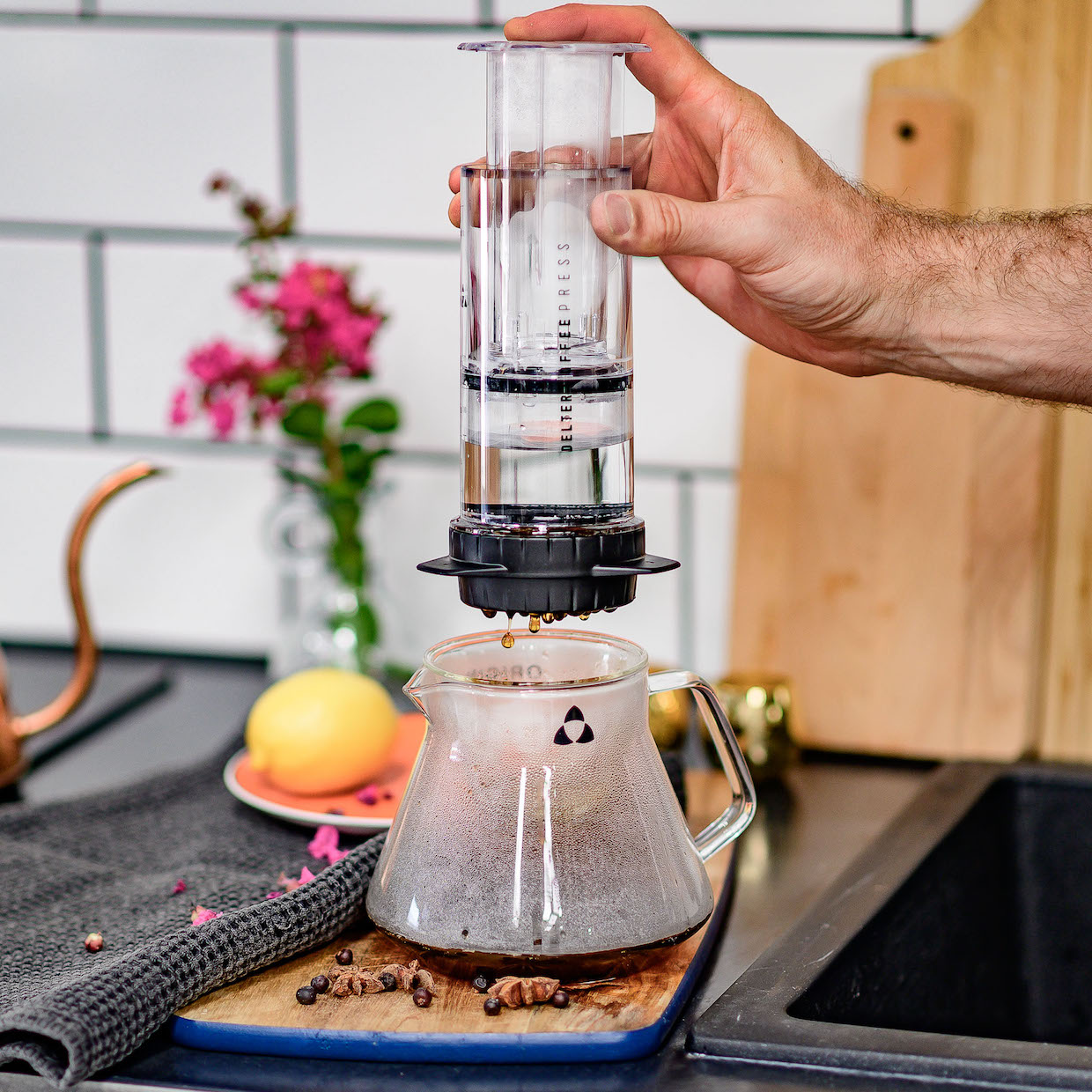



Comment